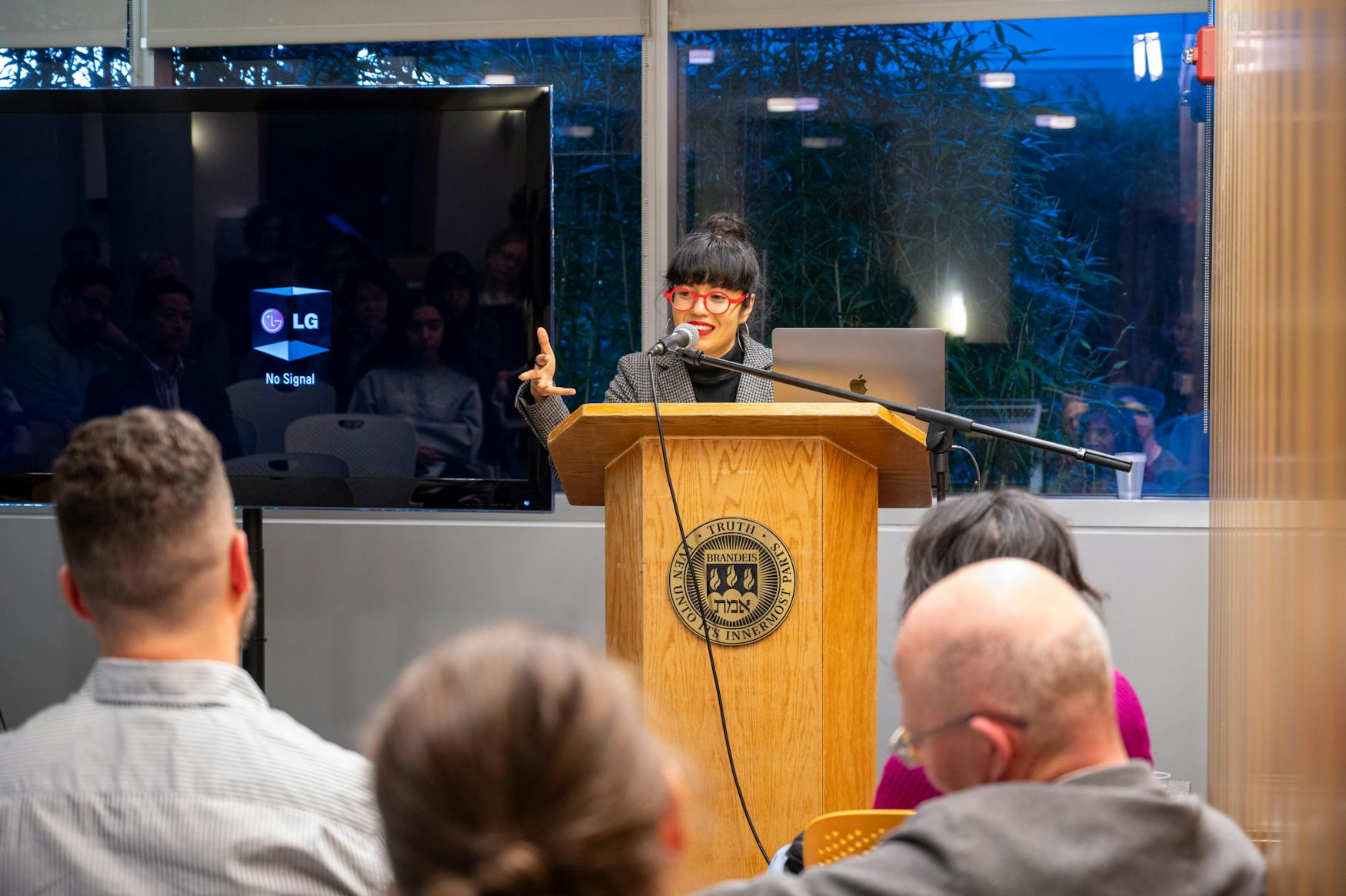USC professor delivers literary lecture on the characteristics of water
The second lecture of this three-part series focused on water and material imagination through a read-aloud of essays by Prof. Jackie Wang.
The Mandel Center for the Humanities held a series of three lectures with Jackie Wang, who is the assistant professor of American Studies and Ethnicity at the University of Southern California. The lectures centered around “ocean ecologies and liquid aesthetics,” the first and third called “The Deep Sea as the New Frontier of Accumulation” and “Oceanic Feeling and the Politics of Mysticism” respectively. The second lecture “Poetry and Tidalectics” was held on March 12. It focused on water and material imagination and was divided into two of Wang’s essays.
Tidalectics is the engagement of literary expression and the characteristics of water. The literal traits of water as an ever-presence and substance, as well as what it represents as a symbol, lend itself to a range of different interactions with literature and the development of a new style. This style is captured by author Clarice Lispector: “Since one feels obliged to write, let it be without obscuring the space between the lines with words.”
The role of water in writing perpetuates themes of existential dread. Wang initially warned attendees of a “gloomy” lecture, noting that she would also discuss water’s “life affirming” qualities. Wang’s process of writing these essays followed what she stated to be the flow of water, leading to pieces that are just as poetic as they are informational; they became embodied by “an elemental fog that is tapped into the non semantic register of language that allows for a multiplicity of voices to speak.”
Wang cited numerous writers for their work with tidalectics and oceaning writings, including Virginia Woolf’s “The Waves” and the works of Clarice Lispector and Alice Oswald. The primary focus was on the Barbadian poet Kamau Brathwaite for his contribution to tidalectic poetry, and an excerpt from one of his speeches was shown. Brathwaite saw writing embodying the qualities of water as a continuation of history, as the ocean connects the Caribbean and Caribbean diaspora. He explored writing that respected the “tempo” of water, which meant “Repetition without resolution” and “dynamic interplay of past, present and future.”
“I wanted to become part of that sea, part of that ocean … I wanted to connect my island to the rest of the Caribbean,” Brathwaite said in a talk in 1996.
The tidalectic approach to poetry was one that, according to Brathwaite, “resists colonial tempos … and colonial British education in Barbados.” While colonial education teaches strict forms such as the pentameter, writing like the water allows the individual to flow freely in unrestricted directions.
The second part of the lecture focused on “water as elegy” or water as a reflection. Water’s characteristics often seem contradictory because of its fluidity. One of water’s primary characteristics is its parallel to time and how water remains a constant through its passage, however it also gives the “illusion of fixation.”
Wang talks about water in the context of identity, death and life, connecting it to language by folding in quotes that portray these understandings of water. She begins by talking about water in relation to permanency and identity. She suggests that water is simply an “illusion of fixation.” Wang quotes Oswald: “my name disappears and the sea slides in to replace it.” Wang uses this quote to explain the fluidity of water and the power it has over individuals, thus remarking on the lack of permanency in the world.
She goes on to talk about writing and its relationship to water by discussing her analysis of Woolf’s writing: “Woolf reminds us that writing is a practice that reaches beyond words.” Wang highlights the role that water plays in expanding thinking around writing and language. As she puts it, water is the “raw material of poetry — [of] literature.” In essence Wang states that water aims to “write out our thoughts.”
Wang also spends some time thinking about sound and language as it relates to water. She says that it’s “usually through sound that our body is saturated [by water].” Wang acknowledges the importance of intellectual thought while also incorporating commentary on how hearing is related to water.
Tidalectics is also influenced by the ideas of philosophers, such as Jean Jacques Rousseau and Heraclitus. Consequently, water in written works also connects to life and death. “Confrontation with water is also a confrontation with death with the finitude of existence,” Wang explained in reference to Ancient Greek myth’s reference to water.
“Between being and non-being there’s water…Water is the background to thought.” Water is the starting point, middle, and end, and guides people through transitional stages. To Wang, Braithwaite and other writers who experimented with tidalectics, water connects ideas and words to flow in a way that aligns with the rhythm of our unconscious.



Please note All comments are eligible for publication in The Justice.